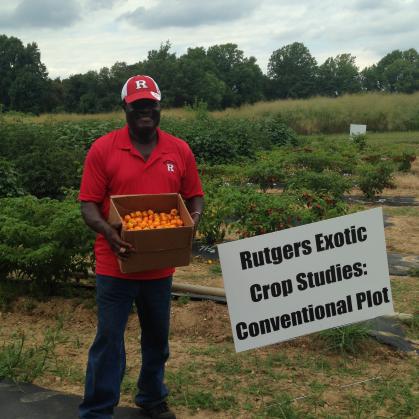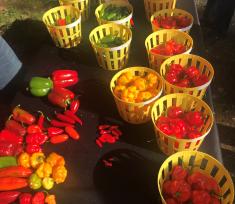Rutgers Pepper History
Rutgers Pepper History

Exotic (hot) peppers are an essential component of cuisines throughout the world and are valued for their contribution to flavor and nutrition. The Exotic Pepper Project was led by now retired professors Albert Ayeni and Thomas Orton, and Distinguished Professor James Simon (Department of Plant Biology). Collaborators include Rutgers graduate and undergraduate students, stakeholders from the pepper sauce industry, and New Jersey ethnic crop growers.
The project focused on producing new pepper varieties via conventional breeding methods, with the aim to produce new, highly nutritious, flavorful, and aesthetically pleasing hot peppers for the New Jersey and global markets. Research sites include substations of the New Jersey Agricultural Experiment Station, such as the Rutgers Agricultural Research and Extension Center (RAREC) in Bridgeton and the Snyder Research and Extension Farm in Pittstown. R&D efforts have been funded by the NJAES and USDA’s IR-4 Project.

2009
Exotic pepper germplasm collection started in New Jersey.
2010
Forty-five pepper selections were field evaluated at the Rutgers Agricultural Research and Extension Center (RAREC).
2014
Out of the most promising 15 habanero pepper types, seven were selected for further development.
2016
‘Pumpkin’ habanero topped the list of preferred habanero peppers for color and appearance, taste, flavor and moderate heat level.
